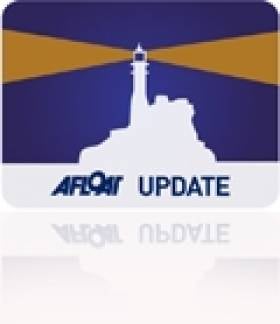Displaying items by tag: McConaghy
Boat Builder Celebrates Fastnet Success
Competing against one of the largest and most diverse fleets assembled in the history of offshore yachting, the Rolex Fastnet race saw the Australian boatbuilder McConaghy's built ICAP Leopard 3, the Reichel Pugh 65 Vanquish (crewed by the young American Oakcliff Offshore Team with average age of 25) and the new Ker 40 Keronimo finish at the front of the fleet. Leopard 3 second overall on IRC, Vanquish 3rd overall on IRC (plus second in class behind overall race winner RAN) and the smallest McConaghy entry Jonathan Goring's new Ker 40 Keronimo beating sixty five boats to secure first in IRC1 A - plus 16th on overall IRC, a massive achievement, says the builder, battling conditions from extremely light to 30 knots against a high quality fleet of two hundred and seventy yachts.
Keronimo success in the challenging 608 mile Fastnet race confirms the Ker 40's ability to beat larger opposition on the water - plus perform extremely well on handicap through a range of conditions offshore. This performance - combined with its immaculate build quality have driven worldwide sales of the Ker 40 to 9, with boats now purchased in Europe, Hong Kong, Singapore, Australia and strong interest in The United States and South Africa.
McConaghy Appoints Ancasta as Ireland Dealer
The initial focus of this new partnership is on the Ker 40; the Jason Ker Designed IRC racer. In addition to the Ker 40, Ancasta will also be promoting the McConaghy 38; an out and out lunatic machine that conforms to no rules and just goes fast upwind and downwind!
The Ker 40 is anticipated as being the next big step in IRC racing. It performs beautifully upwind whilst being exhilarating downwind. This fusion of TP52 inspired performance mixed with an ability to compete under IRC rating is a combination that offers something unique at a price which is very inclusive.
Nick Griffith MD of Ancasta commented: "We are all very excited about the Ker 40, the challenge under IRC has always been to produce a competitive boat under 50' that is also exciting to sail. I have been so impressed with Jason's efforts with the Ker 46 Tonnere and we see the 40 as the next step in that development. At last a full blown 40' race boat competing under IRC. Happy days indeed!"
Ancasta through its extensive network will be handling all the sales and marketing as well as providing the highest standard of after sales care and support. The first two Ker 40's coming to the UK will be based at Hamble Yacht Services in time for this seasons racing.































































